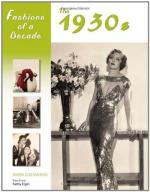|
This section contains 266 words (approx. 1 page at 300 words per page) |

|
Educational conservatives had long been opposed to progressive education; they were even more opposed to social reconstructionism. Generally insisting that education be directed to the few academically talented and that curriculum be oriented toward the status quo and tradition — which often meant the training of "gentlemen" — the conservatives saw nothing less than barbarism in social reconstructionism, the coddling of the least gifted, a mass philosophy of education akin to communism. Educators such as William S. Learned of the Carnegie Foundation; Abraham Flexner, director of the Princeton Institute of Advanced Study; and University of Chicago president Robert Hutchins urged teachers to choose a philosophy they often called "essentialism," rather than social reconstructionism. Essentialists sometimes advocated a "classical" curriculum for high schools and colleges (based on the "essentials" of Western humanism), and they sometimes advocated sharply hierarchical educational placement. Not all essentialists were political conservatives...
|
This section contains 266 words (approx. 1 page at 300 words per page) |

|




